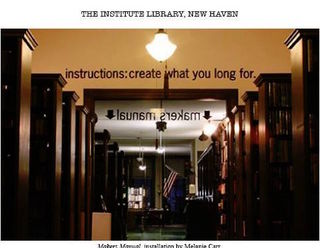Embarrassment
Hooray! My Memoir Is Published!—Oh No! I’m Exposed!
How I fared on the roller coaster of publication, year one.
Posted March 15, 2016

Living with secrets is lonely. Revealing those secrets, especially if they are associated with stigma and shame, could be considered quite foolhardy or seen as brave, a risk with potentially devastating consequences, yet something others might appreciate—better you out there than me. For myself, publication was a dream, too far-fetched to worry about. And if it happened, oh well, I’d figure it out, whatever that meant. I was on the far side of my career.
When my memoir won a book contest with an offer of publication I vacillated between thinking I was pretty cool and terror at exposing myself. I kept the news private. Months passed. Ultimately I decided that publication would be an adventure, a trip up the Great Mountain. With my book in hand I’d plant my flag at its peak—hoping I wouldn’t need to jump off.
It’s been almost a year since the first bright-covered copies arrived at my door. Now I understand why my publisher wanted me to contact friends with media connections before the release date, to write essays and blogs where I could, to find radio shows where my book might be welcome. Next time I won’t be mystified by his pushing for these activities early, before the release date. I see how buzz sells books. And I won’t feel so frightened, so reluctant to put myself forward, so worried about what people might think. On a level far beyond sales, those activities I dreaded—readings and talks, articles and interviews—have changed me.
I want to tell you about a reading at the Institute Library in New Haven at the end of January, and especially about the Q & A and book signing that followed. This was one of a series of events that have had a growing effect on my feelings about myself and my place in the world. I read a half-hour set of pieces that began with harrowing and ended with funny, hoping to provide a taste of the patient community on a 1960s mental hospital ward. After that, people in the audience commented and asked me questions. We really connected! Almost an hour later I had to stop, so that I could sign books before the library closed. It was the first time my voice didn’t give out and leave me hoarse soon after I began.
I’m always impressed by people’s hunger to share their own stories about mental illness and their gratitude for my revealing myself. As I shook hands or signed books, for a number of those at the reading I could feel their relief as they told me about themselves or someone close to them. The stigma of mental illness isolates individuals and families. Shame turns us against ourselves and separates us from our friends. As a psychologist I see this in my office, where so many patients feel they have to keep their appointments with me a secret. I used to feel that way as well—far too recently.
I want to convey the warmth and generosity of the audience, and the way that audience acceptance, repeated across a number of readings and presentations, has gradually sunk in. Occasionally, in the middle of the night it can still be hard for me to remember that I’m okay, too easy to slip back into fear. But in the sunlight, and even in the rain, I’m more and more able to stop and hold myself very still and return to those conversations.
Now I look forward to the richness of the Q & A after I read. People ask interesting questions. I love hearing new perspectives, responding to new ideas. Early on, when I was really nervous, I often blanked—I couldn’t think. This was dissociation I recognized after the first few times. Then, after I’d given a paper or done a reading for the second or third time, I’d think of an answer, but it would disappear before I could respond. After several more times, I‘d think and remember, but I stumbled in my speech. I’d lose my thread and wasn’t always clear.
That night at the library I touched on many of those difficulties, but I noticed that for the most part I answered thoughtful questions with reasonable answers in more or less complete sentences. I might have said more than I probably should—there’s a wish to please so automatic, so before thought, that I search for a response when I should know that here is where I say, “I’m not going to answer that one,” or “It’s not mine to say.” Watching my progress, I hope to learn from each experience and increase my skill.
As word spreads, more strangers contact me. I have the privilege of hearing their secrets, too. I’m safe, because I’ve already revealed my own shame, if you will. “Can I speak with you about writing? I have a story, too.” Yes, please speak to me about writing. And I’ll welcome your story and share with you what I’ve learned about coming out in the world.


